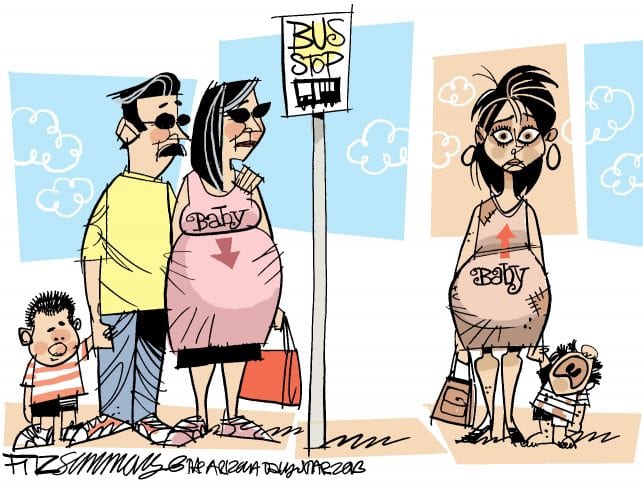BY DAVID PERRYMAN
 What do low self-esteem, depression, mental health and a high teen pregnancy rate have in common? If your answer was Oklahoma, you are eons ahead of 56 members of the Oklahoma House of Representatives.
What do low self-esteem, depression, mental health and a high teen pregnancy rate have in common? If your answer was Oklahoma, you are eons ahead of 56 members of the Oklahoma House of Representatives.
That is the number of men and women who last week voted against HB 1007, which would have given Oklahoma public schools the option to teach age-appropriate consent and healthy relationship education. Who would not want their children and grandchildren and, more importantly, the friends and potential acquaintances of their children and grandchildren to understand what is and what is not consent, and what is and what is not a healthy relationship.
As the author, Rep. Jacob Rosecrants, a Norman Democrat, explained the legislation, there were attempts to derail passage by the eight or so legislators who were vocal in their opposition to the bill and who refused to see that the bill was not a liberal, backdoor attempt to introduce “sex education” into the classroom.
At one point, another legislator who favored the bill attempted to explain that teaching young people to have the self-esteem to “say no” and teaching them to respect that lack of consent would likely reduce the incidence of unhealthy relationships and teen sexual activity. He went on to say that he believed that consent and healthy relationship education in the past might have reduced the high number of legislators who may have engaged in a sexual relationship before or outside of marriage.
In response, one of the legislators who opposed the bill complained to the House Speaker that he had been “disparaged.”
Nancy Schimelpfenning, a free-lance author writing in September 2018 in the online publication A Very Well Mind, stated that more often than not, teens do not have the needed maturity to deal with the risks and responsibilities associated with sex. And when they turn to risky sexual behavior to cope with their feelings of depression and inadequacy, it can create many life-altering situations for them, such as pregnancy, abortion, sexually transmitted disease, and parenthood.
Even though the bill as voted on allowed a parent to opt their child out of the curriculum, there was opposition from vocal legislators who want their children to learn about self-esteem, healthy relationships, boundaries and interpreting consent from their family or from their church. They were not convinced however, that passage of the proposal could make a positive impact on the lives of students who do not receive that message from their family or a church.
According to the Teen Pregnancy Prevention webpage of the Oklahoma State Department of Health, the reality is that the Oklahoma Teen Pregnancy Rate [29.7 per 1,000 females] is 36.7% higher than the national average of 18.8 per 1,000 teen females and is closely linked to critical social issues such as poverty, educational attainment, and increased health care costs.
More than 40% of teen moms live in poverty within the first year of giving birth; by the time the child is three, the figure increases to 50%.
Nearly 64% of Oklahoma teens that gave birth in 2012-13 said that their pregnancy was unintended, while another 21% were not sure if they wanted a baby later, sooner, then, or at all.
More than once, the word “abstention” was mentioned by those who opposed the bill. What better way for a young person to protect their right to abstain by instilling in him or her the self-esteem to take that stand and by instilling in his or her friends the knowledge of when he or she is or is not consenting.
– Chickasha Democrat David Perryman represents District 56 in the Oklahoma House and serves as minority floor leader








